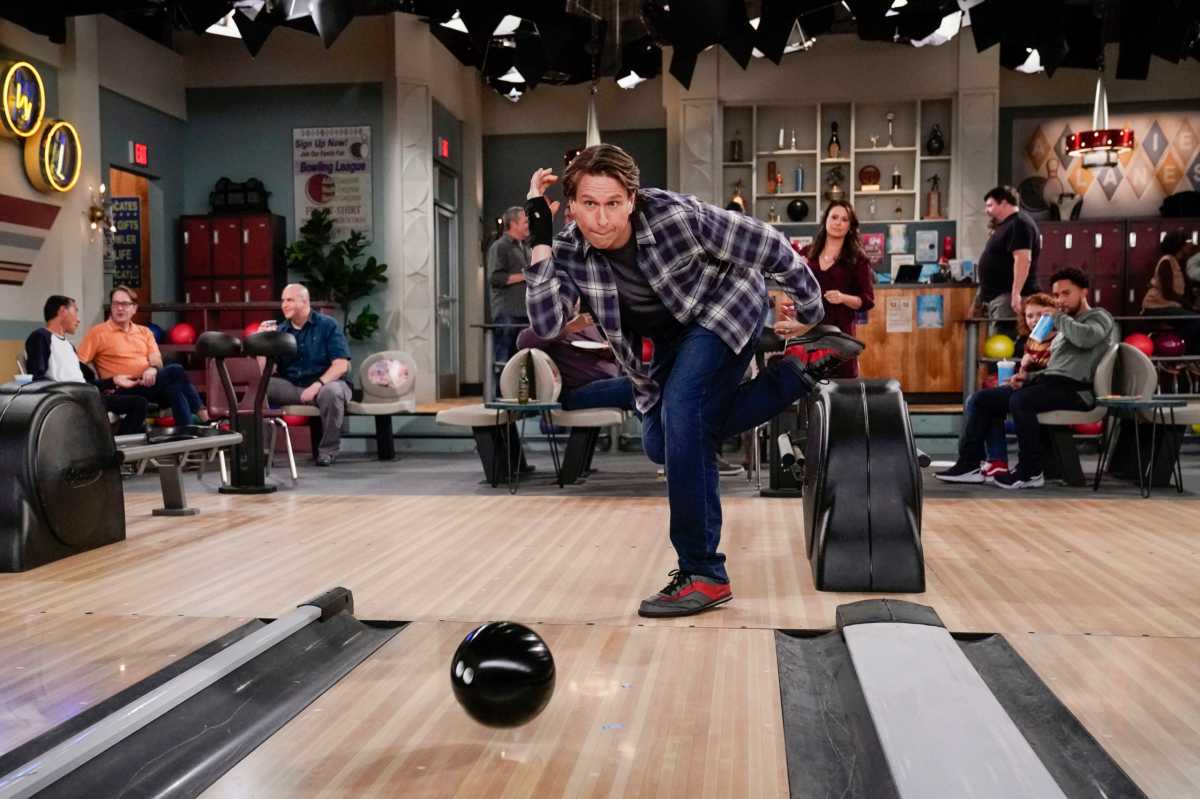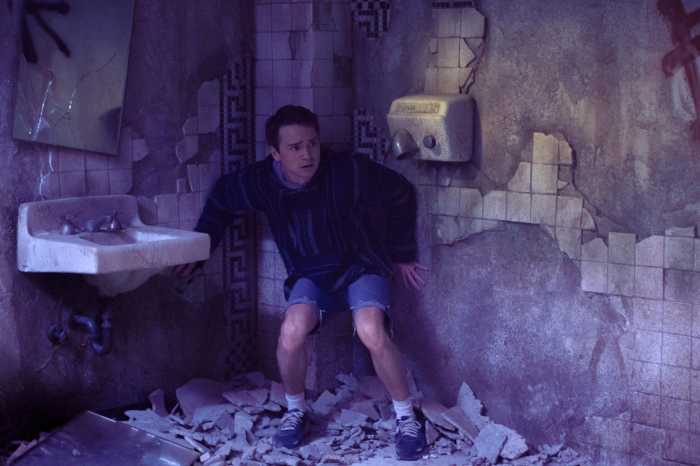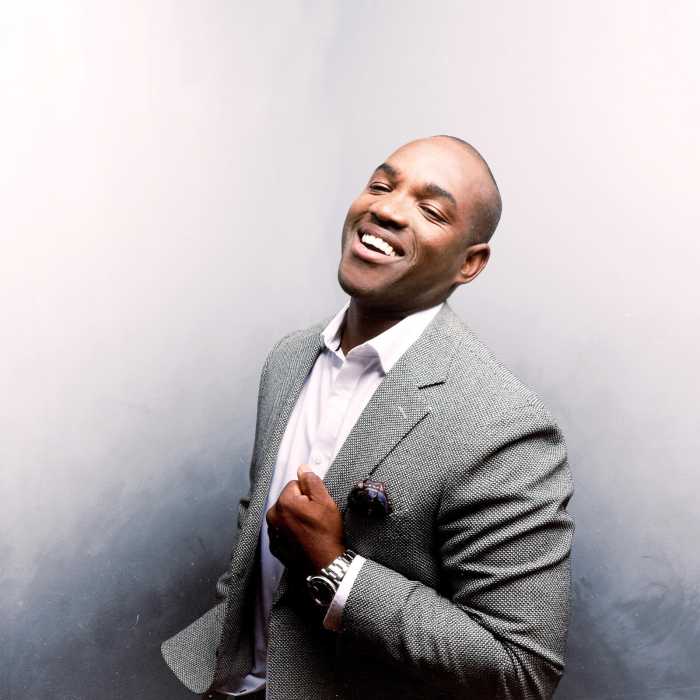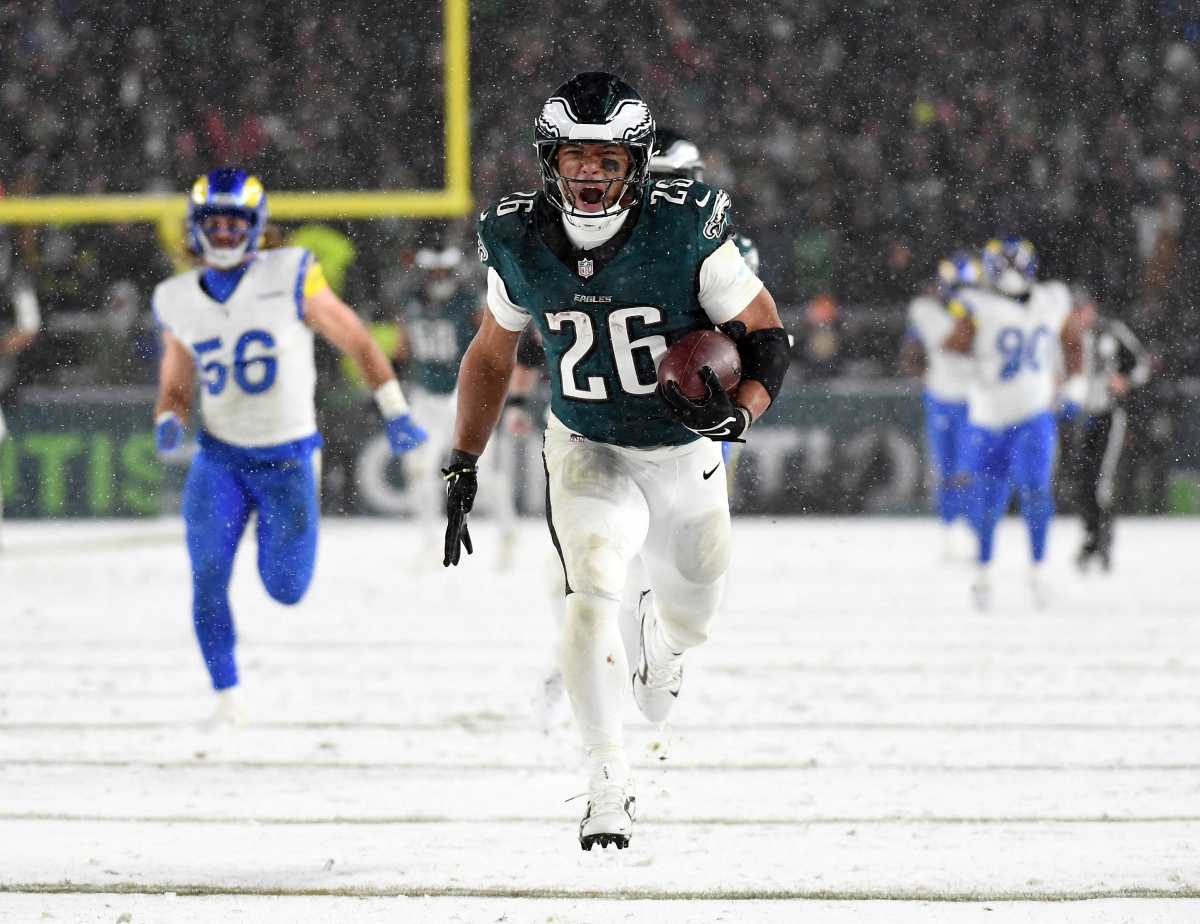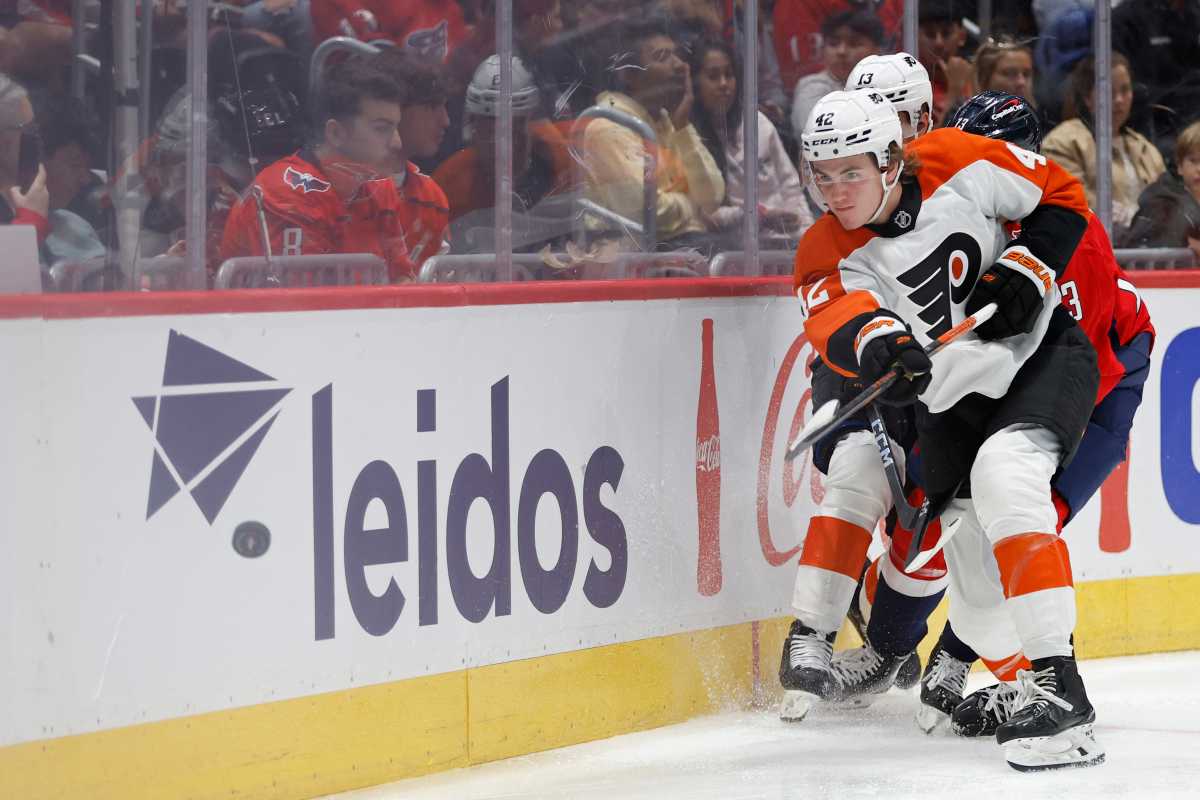Going from working on a three-season dramedy (‘Crashing’) produced by Judd Apatow, writing an partially-autobiographical book (‘Comedy Sex God’), hosting a podcast (‘You Made it Weird) to now working on CBS’ new multi-cam show ‘How We Roll,’ comedian Pete Holmes has certainly exercised different taps of creativity, both personal and not.
On ‘How We Roll,’ Holmes plays Tom Smallwood, a stoic Midwest husband and dad who gets laid off from his job and decides to use this shift in his life to go after his dream of professional bowling. In times where pivoting is in the cards for most people, Holmes thinks this will provide some relatability for audiences—and also just a good laugh and a happy place.
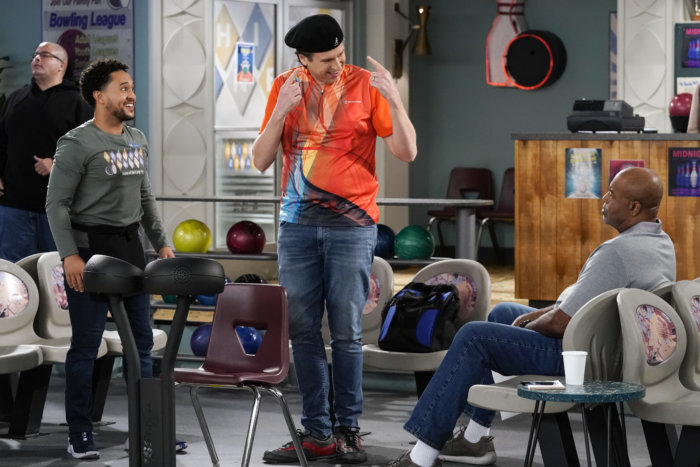
What was your initial interest in ‘How We Roll?’
It happened during quarantine. Just the idea of doing a multi-cam sounded like heaven on Earth compared to what we had all been doing—and it turns out, I was completely right, it’s the opposite of quarantine. It’s seeing people, it’s hanging out on a stage which felt like a summer camp and there’s a reliability, you go here every day, you hang out and you laugh.
[When] the script came through, I remember Val (Chaney, Pete’s wife) and I went to my office and we were going through the script that Mark (Gross) wrote. The attitude was just please be good… So many things can be just okay or at worst, kind of embarrassing or silly. I’m a kid of the 90s and to me, making it in show business was being on specifically a network multi-cam, so I thought it would be cool. When we read the script, and I’m not kidding, we laughed at every page. Then, there were a couple of things that stood out to me: One was my wife character played by Katie Lowes, Jen, she’s so not used to what we’re seeing. I was like oh no, I’m gonna be the schlebby soft, leading man who had a gorgeous wife who’s a pain in the butt… She’s gonna be a nag or she’ll have no interests of her own. Both Val and I were pleased that she was not only funny and real, but also three-dimensional.
Then the other thing I noticed, my son Sam (Mason Wells), on the show is into tap dancing. As soon as I read that, I thought please don’t go the obvious route. [My character] works on an assembly line working with cars—chances are this guy is going to think his son is weird or other. You know the sort of thing where he would say “Don’t you want to play football [instead]?” That sort of thing. That didn’t happen. In fact, it went the complete other way, and I was just completely on board. I set up a Zoom with Mark the next day, and we were off and running.
How would you describe your character and what he goes through?
I think it does tie back into quarantine for everybody. It seems like everybody, even if they were doing something they loved, they asked themselves what does my life look like? Does it look like what I want it to look like? I think we’re coming into a time when people have the benefit of that re-evaluation.
I saw that with everybody, and that is very clearly what is going on for Tom. He’s forced into it, he’s laid off and he has to fall back into the only other thing he’s good at—which is bowling. But I think especially now, given how things are, people can hopefully relate to someone trying to change the shape of their life a little bit.
I think the reason Mark thought of me for this role, it reminded him of the other show that I did, ‘Crashing.’ It was not about getting laid off, but about getting divorced, and it was not about bowling, but about getting into stand-up. So, it was about when life shifts in a way that you didn’t want or expect and how that can project you actually into the life that you need.
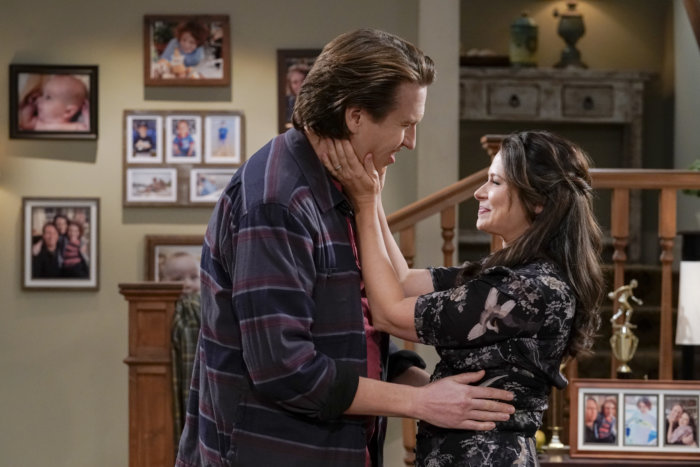
Did you have to do any kind of bowling training for the show?
A little bit. A professional bowler named Robert Smith gave me some lessons, and I had some lessons on set for the pilot as well. You’ll see on the show, bowling is usually the backdrop—it’s the reason why these friends are together, and it’s the thing that this family is banding around. But, there aren’t like beautiful slow-motion shots of me picking up a 7-10 splitter. That being said, I do hope that people who love bowling love the show.
I was happy to see that we weren’t taking cheap shots at bowling, in researching the role and the show, I got to have a great appreciation and respect for these guys. And I just wanted to look like I knew what I was doing, how you turn your hand when you rotate the ball—little things like that to look closer to a pro than an amateur.
Does going from working on a dramedy to a multi-cam exercise different comedic muscles for you in a way?
Yes, it’s much closer to doing stand-up actually. When I would do stand-up at night after shooting or rehearsing all day, I noticed that even though I didn’t do it as much as I used too, that muscle was still really worked out—because it’s telling jokes. Certainly, you have to act, but there is a delivery and timing element. So going to do stand-up, I was surprised at how loose I felt and how natural I felt.
This has a lot of: How can I say this? How should I move when I say this? What words can I emphasize? And those are questions I ask when I’m doing stand-up. I also really wanted to do something—and I love ‘Crashing’ so much, it was my baby—but, different. We would have a group of writers huddled trying to find the perfect joke, and you have the audience there and that feeds into your timing and it’s very different from pretending to break up with your ex-wife and getting [into] emotional moments. Not to say there aren’t emotional moments, but this had a lot of hit the mark, find the light, nail the joke—that is really fun for me.
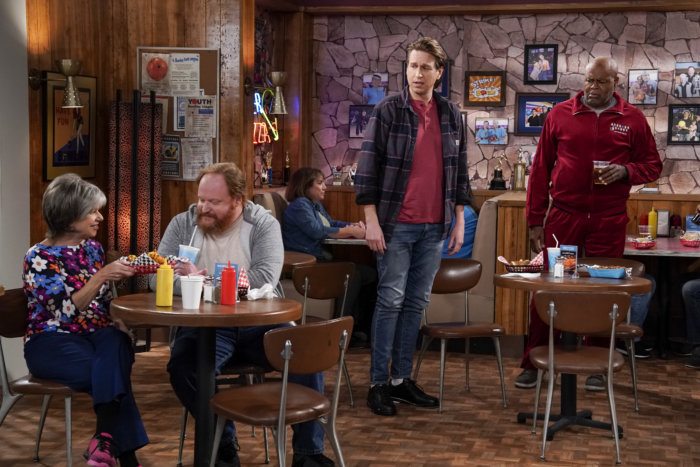
I would assume going from doing semi-autobiographical experiences to doing something not as personally-connected was different for you as well?
You’re absolutely right. Doing ‘Crashing,’ I joked was a little bit like doing an episode of ‘Black Mirror.’ When you’re casting people who look like your parents to say things to you that bothered you the first time, and now you have to do ten takes of them saying it to you again….It’s simultaneously difficult and it can also be therapeutic.
‘Crashing’ was a dream come true, but in comparison [time] with Katie Lowes and Tahj Mowry and Chi (McBride), we spent so much time together that you actually do start to feel that cliche like a family. That’s not to say on ‘Crashing’ it didn’t, but it wasn’t the same. Sometimes you met the person you were going to do the scene with 15 minutes before you did the scene whereas with this, you’re rehearsing all week, hanging out, having inside jokes…And those things bleed into the show and those relationships come through on screen.
What do you hope audiences take away from the show?
My hope for audiences is that they get out of it what I get out of my favorite comedies—It’s a place you want to visit. When I watch ‘Frasier,’ when I see his apartment, that’s one of my favorite places. During lockdown, we would watch so many shows like that. It’s the places, it’s the characters and it’s the laughs.
I think if the past couple of years has taught us anything, it’s that television can be this wonderful help when it comes to hey, do you need a laugh? Do you want to go to a friendly place and see people, in a ‘Ted Lasso‘ kind of way, helping each other, supporting each other, and making each other laugh? That’s what I hope they get out of ‘How We Roll.’
‘How We Roll‘ premieres on CBS March 31.



